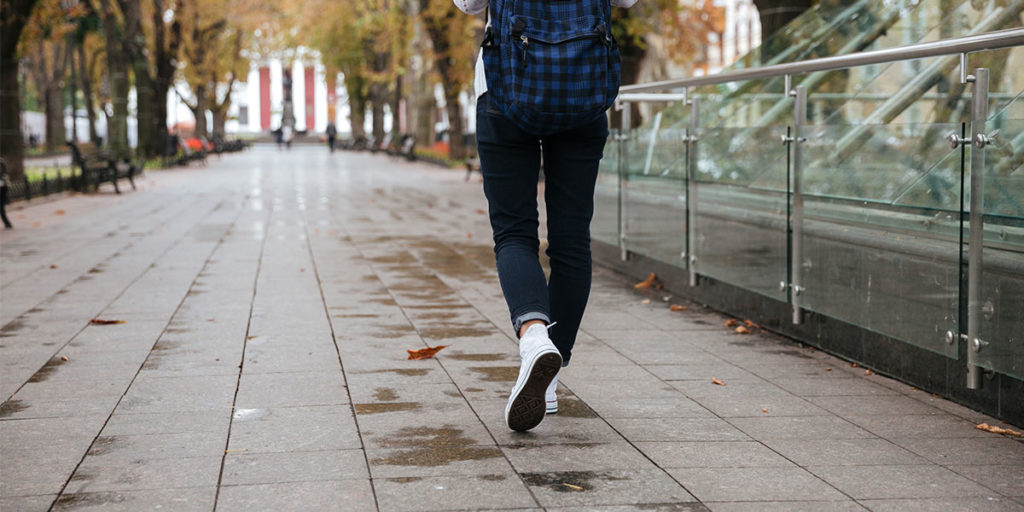Quick Hits
Daily brief research updates from the cognitive sciences

If you want to age better, then walk quicker, or those who walk quicker, age slower. That is the result of a recent study of 400,000 UK adults mapped to genetic markers of age by the University of Leicester.
What exactly did these researchers find?
They looked at the telomeres which you may have heard of. These are caps at the end of your chromosomes that protect the chromosome (which houses your DNA). They’re kind of like the caps on shoelaces which stop them fraying. Once these shorten or disappear your DNA is at danger of losing the ability to replicate.
Telomere length seems to be a pretty good indicator of biological age irrespective of how old you are.
And this is where the connection becomes interesting. It seems that fast, or brisk, walkers have longer telomeres, and this can lead to a whopping 16 years younger biological age by midlife. That’s a lot. This is also independent of how much other exercise you get.
The same researchers have also shown previously that as little as 10 minutes of brisk walking a day is associated with longer life expectancy and that brisk walkers can have up to 20 years greater life expectancy than slower walkers.
Though they haven’t been able to fully confirm that faster walking speed will lead to greater life expectancy (in contrast to those who naturally walk faster having a natural longer life expectancy) they do note after this study that it is likely.
So, get yourself walking, briskly. My advice for those in the office to have a 3-minute brisk walk every hour seems also to hold very, very true for this, and other reasons.

Andy Habermacher
Andy is author of leading brains Review, Neuroleadership, and multiple other books. He has been intensively involved in writing and research into neuroleadership and is considered one of Europe’s leading experts. He is also a well-known public speaker speaking on the brain and human behaviour.
Andy is also a masters athlete (middle distance running) and competes regularly at international competitions (and holds a few national records in his age category).
Reference
Paddy C. Dempsey, Crispin Musicha, Alex V. Rowlands, Melanie Davies, Kamlesh Khunti, Cameron Razieh, Iain Timmins, Francesco Zaccardi, Veryan Codd, Christopher P. Nelson, Tom Yates, Nilesh J. Samani.
Investigation of a UK biobank cohort reveals causal associations of self-reported walking pace with telomere length.
Communications Biology, 2022; 5 (1)
DOI: 10.1038/s42003-022-03323-x
More Quick Hits
Adventurous Play Boosts Mental Resilience in Kids
o, a simple cheap way to help your kids improve all life skills and strengthen mental wellbeing. Too good to be true? Well, this piece of research, just out, finds a fascinating correlation with mental health and kids. This correlation was...
So, Meditation Doesn’t Change Your Brain – Or Does It?
editation can actually change your brain. "Oh, no it can’t!" say these researchers. "Oh, yes it can!" say a lot of other researchers. Does this start to sound confusing? Well, it does because there has been plenty of evidence that...
The Life Factors that Make Lonely People Lonely
Quick HitsDaily brief research updates from the cognitive sciences ou may assume, logically at first glance, that not having contact to people is the most important factor in loneliness. And obviously this does have a large impact — but...
How Music Helps With Collective Grief
his study recently out analyses a fascinating episode in China at the start of the pandemic. A group of international musicians in Shenzhen produced a viral hit in China. This was a cover version of Michael Jackson's “you are not alone”...
Why it pays for companies to help workers have a good day in the office
usiness and executives in those businesses are more than keen to get a competitive advantage. To this end they invest heavily in technology and getting the right people to do the job. But, I am sure, we are all more than aware that the work...
Vaccination to Keep Your Memory?
Quick HitsDaily brief research updates from the cognitive sciences ho wouldn’t want to keep their memory when aging?! Well, researchers have just announced some promising results in mice enabling them to keep their memories and avoid some of...






